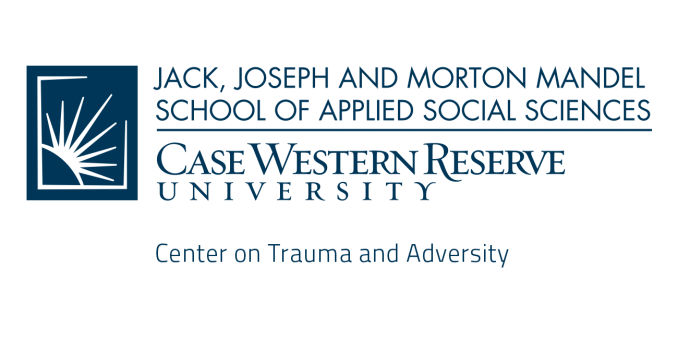Case Western Reserve University is proud of the work its Center on Trauma and Adversity (Trauma Center) has done since its establishment in April 2018. This research and training center, which is part of the university’s Jack, Joseph and Morton Mandel School of Applied Social Sciences, responds to the community’s need for trauma-focused research and the development of trained social workers who can effectively assess, intervene, and treat people and communities affected by trauma – to help them experience healing, overcome adversity, reduce suffering, and achieve recovery and resilience. Through federal, state and foundation funding, the Trauma Center’s research has focused on empirical examination of protective factors associated with promoting resilience among children, youth, families, and communities experiencing trauma and adversity; the development of trauma-informed interventions; and creating and sustaining trauma-informed and trauma-responsive organizations and systems to promote healing. Examples of ongoing research include a partnership with the Ohio Attorney General’s office to create the national model for a neurobiological-informed, child-centered and developmentally appropriate screening tool for trauma experiences and reactions; the development and evaluation of an improved trauma-informed batterer intervention programming with men; and examination of biological and environmental factors that interact to affect long term developmental outcome of children.
Over the past few years, the Trauma Center has established itself as an important resource for the local and international trauma-informed community in providing guidance in understanding the impact of trauma on both clients and the helping professionals. Through their monthly CoHealing intervention (formerly called Healing Network Nights), the Trauma Center has improved relational health and reduced burnout among helping professionals by processing the ups and downs of engaging in trauma-informed work. Their center affiliates have trained thousands of practitioners and community members on the prevalence and impact of trauma on the brains and bodies of individuals, families and communities. At the onset of the COVID-19 pandemic, the Trauma Center mounted a series of virtual programs for a world-wide community that promoted social connection, stress reduction, and healing reaching nearly 2000 individuals within the first month. Case Western Reserve University is grateful for the expertise of the Trauma Center faculty affiliates particularly as we have navigated the collective trauma of the COVID-19 pandemic––they have provided thought leadership and have informed university programming on important topics such as collective trauma, mental health, well-being, stress-reduction, burnout, and grief.
In addition, the Trauma Center has brought recognition to the Mandel School as leading the nation in training the next generation of trauma-informed social workers. Members of the Trauma Center have established several student training opportunities, including the Graduate Certificate in Trauma-Informed Practice. Through partnership with Dr. Bruce Perry and the ChildTrauma Academy, the Trauma Center launched the country’s first Trauma-Informed Practice Fellowship in the Neurosequential Model of Therapeutics (NMT), which is an evidence-based, developmentally sensitive model of clinical problem solving for traumatized individuals, families, and communities.


